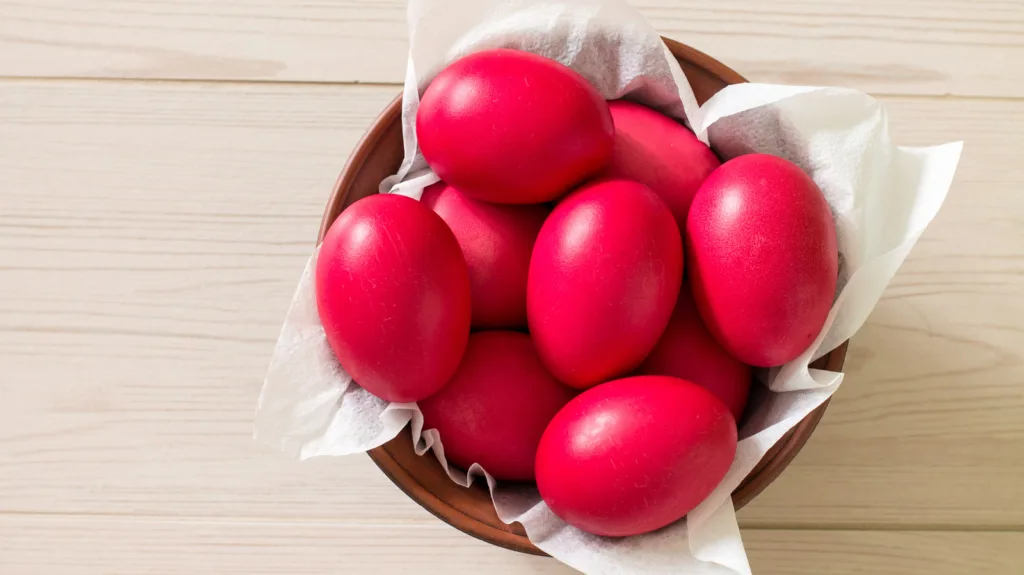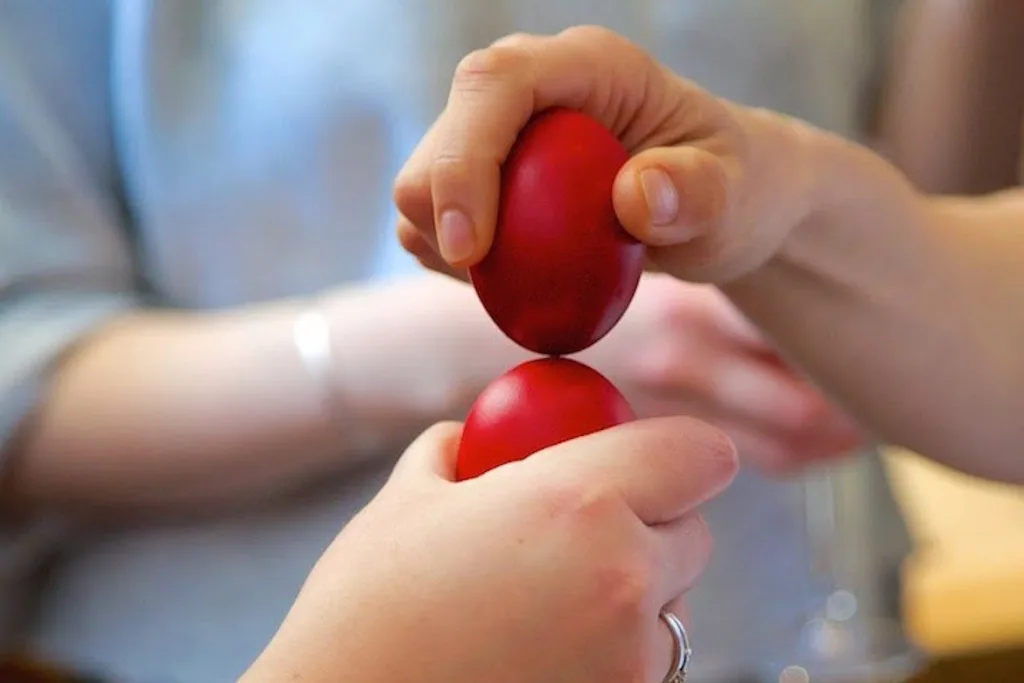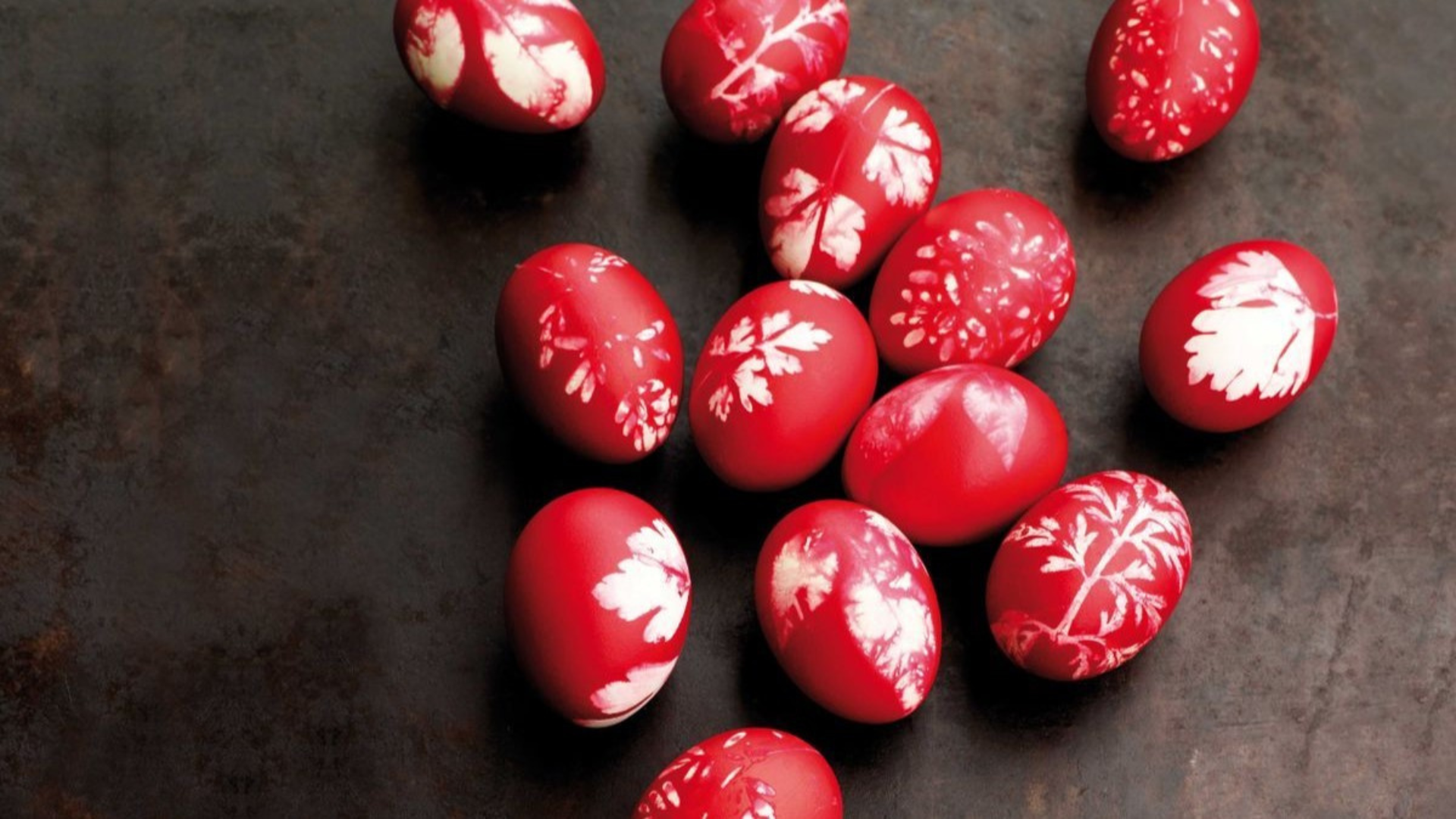Every year, Easter is one of the most important religious celebrations in the Orthodox faith.
That being said, one of the most significant traditions associated with Orthodox Easter is dyeing red eggs and then cracking them.
Why do we dye eggs red?
Every year on Holy Thursday, Orthodox Christians boil eggs and then dye them red to symbolise the blood of Jesus Christ. This marks the same day that Jesus Christ invited his disciples to the Last Supper and gave them the mystery of Holy Communion. He gave them bread, which represented his body, and red wine, which represented his blood.
The eggs themselves symbolise the tomb that Jesus emerged from and serve as a reminder of Jesus’ sacrifice for us and symbolise new life. Just like Jesus emerged from the sealed tomb, we crack the eggs to signify new life and Jesus’ victory over death.
The bright red dye we use represents the blood Jesus Christ shed upon his Crucifixion. However, over the years, we have adapted to incorporating different colours of dyes and embellishments to decorate the traditional eggs.

When do we crack the eggs?
When it comes to cracking the eggs, we do this on Holy Saturday or Anastasi, where we celebrate Jesus’ Resurrection.
This tradition, also known as ‘Tsougrisma’ – which means ‘clinking together,’ follows a family gathering after midnight mass on Saturday night, where everyone indulges in a delicious feast of meat and mageritsa (traditional Greek Easter soup made from offal) and cracks the red eggs. They compete against one another, to try and crack their opponent’s egg, while keeping their own intact.
While cracking eggs, one person says “Christos Anesti” (Christ has Risen) while the other person responds “Alithos Anesti” (indeed He has risen). Whoever’s egg remains intact is then deemed the winner of the tsougrisma and is believed to have good luck for the rest of the year.
The tsougrisma symbolises the breaking open of the sealed tomb where Jesus was enclosed and believed to be dead. It also highlights a miracle, being Jesus’ Resurrection.

How to boil the red eggs
Firstly, to prepare for boiling the eggs, make sure you have all the right supplies.
You will need:
- a carton of eggs (or cartons) – depending on how many you anticipate on boiling
- white or red wine vinegar
- red egg dye – or any colour you wish
- Plastic gloves- which will stop your hands from turning red
- a pair of stockings
- any sort of leaves from your garden
- scissors
- thread
- a saucepan
- a bowl
- oil
Method:
- Firstly, you will need to cut up your stockings into squares (enough to cover a full egg).
- Next, grab your chosen leaf and put it vein-down onto the egg. Once you have done this, wrap the egg with the stocking and use the thread to tie it tightly at the back – do this for all eggs.
- After this, you will then put all your eggs into a saucepan and let them boil for 10-15 minutes (or longer, depending on how many eggs you boil).
- Then, take the eggs off the stove. Using another bowl, fill it with 200 millilitres of warm water, and then mix in 2 tablespoons of red wine or white vinegar and the chosen colour of dye (make sure you wear your gloves for this!)
- After this, put the eggs into the bowl of dye to soak up the desired colour.
- Repeat this for all eggs, then let them cool down by placing them in the egg carton.
- Once they have cooled, remove the stocking and polish with oil to make them shiny.
